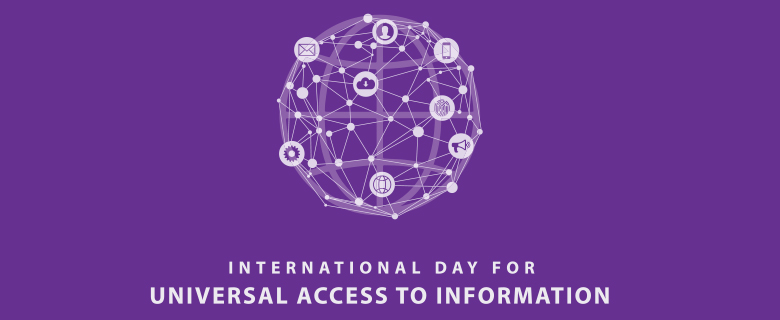
In 2015, the United Nations General Assembly proclaimed 28 September each year as the International Day for Universal Access to Information and the celebration of the right to knowledge for all. This day has gained additional importance after the outbreak of the Covid-19 pandemic, as it has become necessary to enhance the use of information in times of crisis to raise public awareness, help save lives, and to inspire hope.
The right to information is a basic human right, and it means that every person has the right to seek, receive and impart information. This human right is closely related to freedom of expression and freedom of the press and, therefore, it is closely related to the well-being of individuals and societies, because the availability of accurate and comprehensive information helps in making correct and timely decisions in various aspects of economic, social, health, and other aspects of life.
As a fundamental right, this World Day aims to promote international cooperation in the provision of information, to build local and international institutions that support sustainable development based on information being the right and property of all, to promote continuous learning for all, including the marginalized and people with disabilities, and to promote online cultural diversity and multilingualism.
The celebration of this day is in line with the Sustainable Development Goal 16.10, which calls for ensuring public access to information, protecting basic freedoms, achieving the 2030 Sustainable Development Plan, and contributing to building knowledge-based societies, which in turn is also in line with Qatar’s drive towards adopting a knowledge-based economy and its interest in cultural development.
Qatar National Library has a prominent leading role at the local, regional and international levels with regard to making information available to all and contributing to related initiatives and projects. It does this by providing printed and electronic resources to various groups in society including people with disabilities, conducting educational events, and building local and international partnerships that serve to achieve this goal, which is to provide universal access to information through the resources, services and initiatives below:
Online Resources: Our members have free access to online resources that cover a wide range of subject areas and age groups. You can download ebooks, audiobooks, academic papers, newspaper articles, magazines, and stream music and videos.
Qatar Digital Library: This huge digital library includes a growing archive that covers the modern history and culture of the Gulf and wider region, available online for the first time.
Qatar National Library Open Access Program: Open access refers to free and instant unrestricted online access to research publications. Open access removes barriers to accessing research and ensures that your work reaches the widest possible audience, which increases the number of readers, citations, improves reproducibility and re-use of content.
Interlending and Document Supply Service: Our Interlending and Document Supply (ILDS) service provides you with materials in an electronic or print format that are not available in the Library’s resources and collections. If after searching the Catalog and Online Resources you can’t find the material you are looking for, you may click here to request this service.
The celebration of this day aims to encourage the formulation of policies and legislation that will make information available to all, in addition to cooperation and the exchange of experiences in order to establish projects aimed at stimulating free access to information. In this context, Qatar National Library, in partnership with The IFLA Document Delivery and Resource Sharing (DDRS) Standing Committee , has organized the 17th Interlending and Document Supply (ILDS) Conference. Under the conference theme, “Sharing to Heal: Resource Sharing Through the Pandemic and Beyond,” delegates will discuss strategies and solutions that were created during the pandemic and examine how libraries across the world demonstrated resilience and used new tools and initiatives to share information.

Add new comment